Math can be a challenging subject for many children, but with the right approach and support, they can learn to tackle it with confidence. Building a strong mathematical foundation early on is essential for your child’s academic success and overall confidence.
American students are struggling with math. The latest results from the National Assessment of Educational Progress reveal this issue. Published by the U.S. Department of Education’s National Center for Education Statistics, the findings show a significant drop in math and reading scores for fourth and eighth graders, highlighting the negative impact of the pandemic on education.
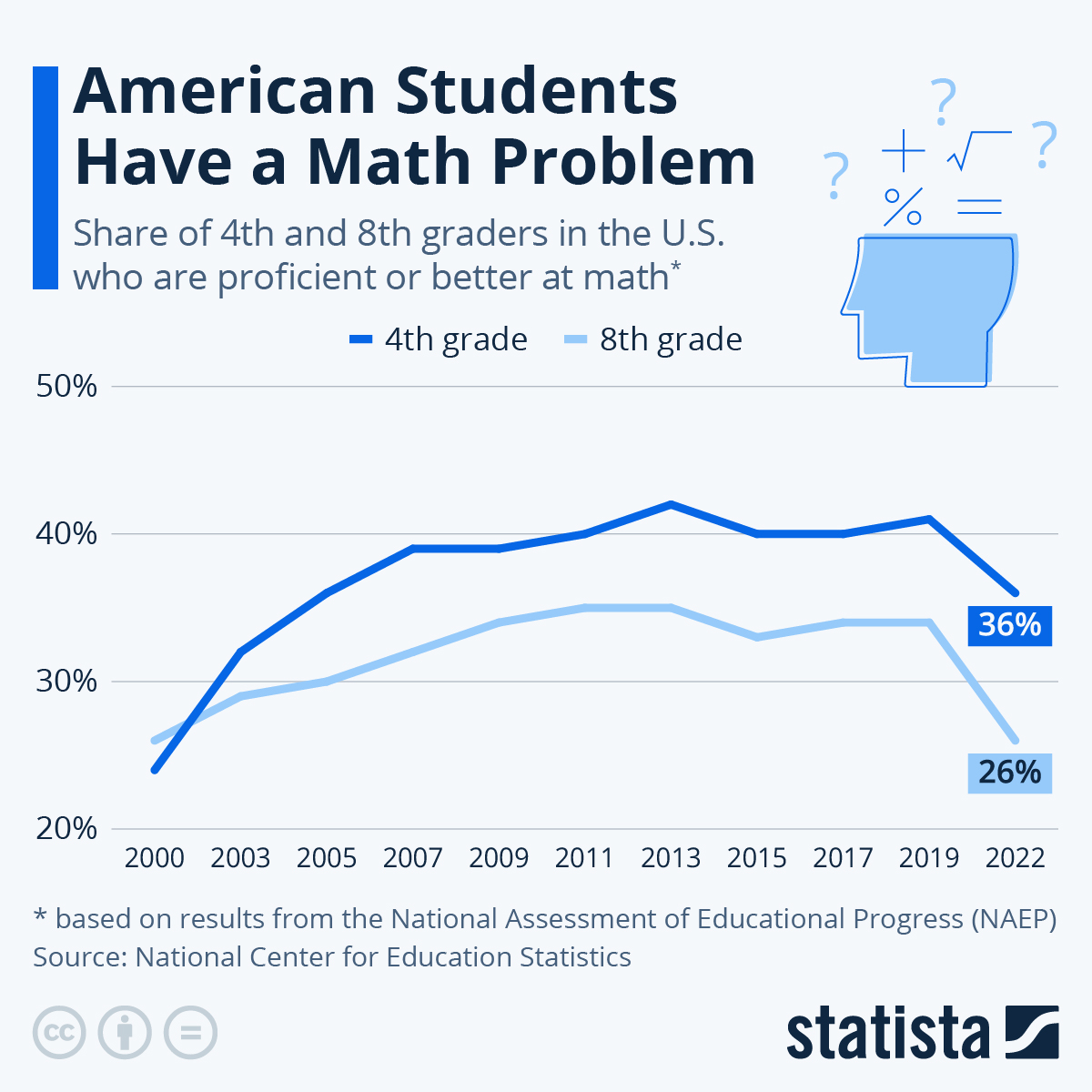
Here are some effective strategies to help your child approach math with confidence:
1. Create a Positive Learning Environment
A positive learning environment is crucial for helping your child feel comfortable and confident in their math abilities. Here are some tips to create such an environment:
- Encouragement: Praise your child’s efforts, not just their successes. Celebrate their hard work and perseverance.
- Patience: Be patient and understanding when they struggle. Encourage them to ask questions and seek help when needed.
- Resources: Provide access to a variety of learning resources, such as educational apps, games, and books that make learning math fun and engaging.
2. Make Math Relevant
Connecting math to real-life situations can make it more interesting and relatable for your child. Here are some ways to do this:
- Daily Activities: Incorporate math into daily activities like cooking, shopping, and gardening. For example, ask your child to measure ingredients or calculate the total cost of items.
- Games and Puzzles: Use games and puzzles that involve math skills. Board games like Monopoly, card games, and math-based puzzles can make learning math enjoyable.
3. Encourage a Growth Mindset
A growth mindset can help your child see challenges as opportunities to learn and grow. Here’s how you can foster this mindset:
- Language: Use positive language that emphasizes effort and improvement. Instead of saying, “You’re not good at math,” say, “You can improve with practice.”
- Mistakes: Teach your child that mistakes are a natural part of the learning process. Encourage them to learn from their errors and view them as stepping stones to success.
4. Provide Consistent Practice
Consistent practice is key to building math confidence. Here are some strategies to ensure your child gets regular practice:
- Homework Routine: Establish a regular homework routine that includes dedicated time for math practice.
- Online Resources: Utilize online resources and apps that offer interactive math practice. Websites like Khan Academy and IXL provide personalized learning experiences.
5. Seek Help When Needed
If your child continues to struggle with math despite your efforts, it might be time to seek additional help. Consider these options:
- Tutoring: Hire a tutor who can provide personalized attention and tailored instruction.
- School Resources: Take advantage of school resources such as after-school programs, math clubs, and teacher support.
6. Set Realistic Goals
Setting realistic goals can help your child stay motivated and track their progress. Here are some tips for goal-setting:
- Short-term Goals: Break down larger goals into smaller, manageable tasks. For example, mastering multiplication tables before moving on to division.
- Celebrate Achievements: Celebrate your child’s achievements, no matter how small. This will boost their confidence and encourage them to keep going.
7. Be a Role Model
Your attitude towards math can greatly influence your child’s perception of the subject. Here’s how you can be a positive role model:
- Positive Attitude: Show a positive attitude towards math and avoid expressing negative feelings about the subject.
- Engagement: Engage in math-related activities with your child. Show interest in their math homework and participate in math games together.
Recommended Reading: 10 BEST PARENTING BOOKS FOR 2023
Suggested Books To Teach Math with Confidence
1. Kindergarten Math with Confidence Instructor Guide
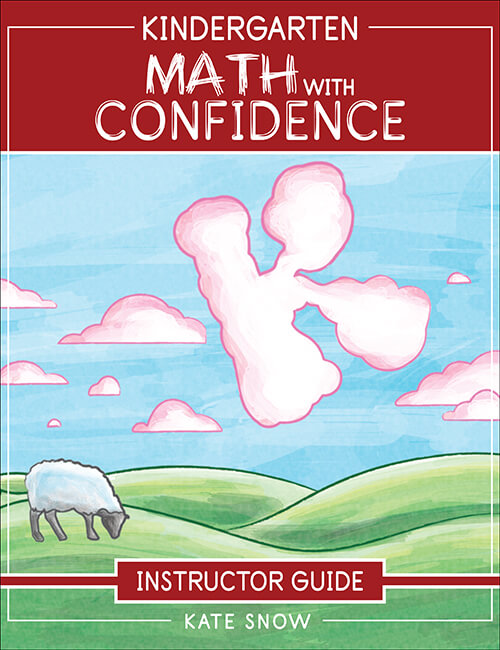
Math educator Kate Snow offers a step-by-step program for parents to teach kindergarten math confidently. Her program covers counting, writing numbers, basic addition and subtraction, shapes, patterns, coins, time, and measurement. Engaging lessons with games and everyday objects keep kids interested, while worksheets prepare them for first grade. Snow also recommends math picture books and real-life applications, helping parents understand both what to teach and why. With Kindergarten Math With Confidence, parents can build a strong math foundation for their children.
Place to purchase this book: Amazon and the Well-Trained Mind website
Grade: First Grade
2. First Grade Math with Confidence
Math educator Kate Snow equips parents with the resources to confidently teach math. This easy-to-follow, scripted program guides parents and instructors through the essential concepts first-graders need to learn:
- Counting, comparing, and writing numbers up to 100
- Addition and subtraction facts up to 20
- Solving addition and subtraction word problems
- Understanding beginning place-value and mental math
- Exploring shapes, money, time, and measurement.
Place to purchase this book: Amazon and the Well-Trained Mind website
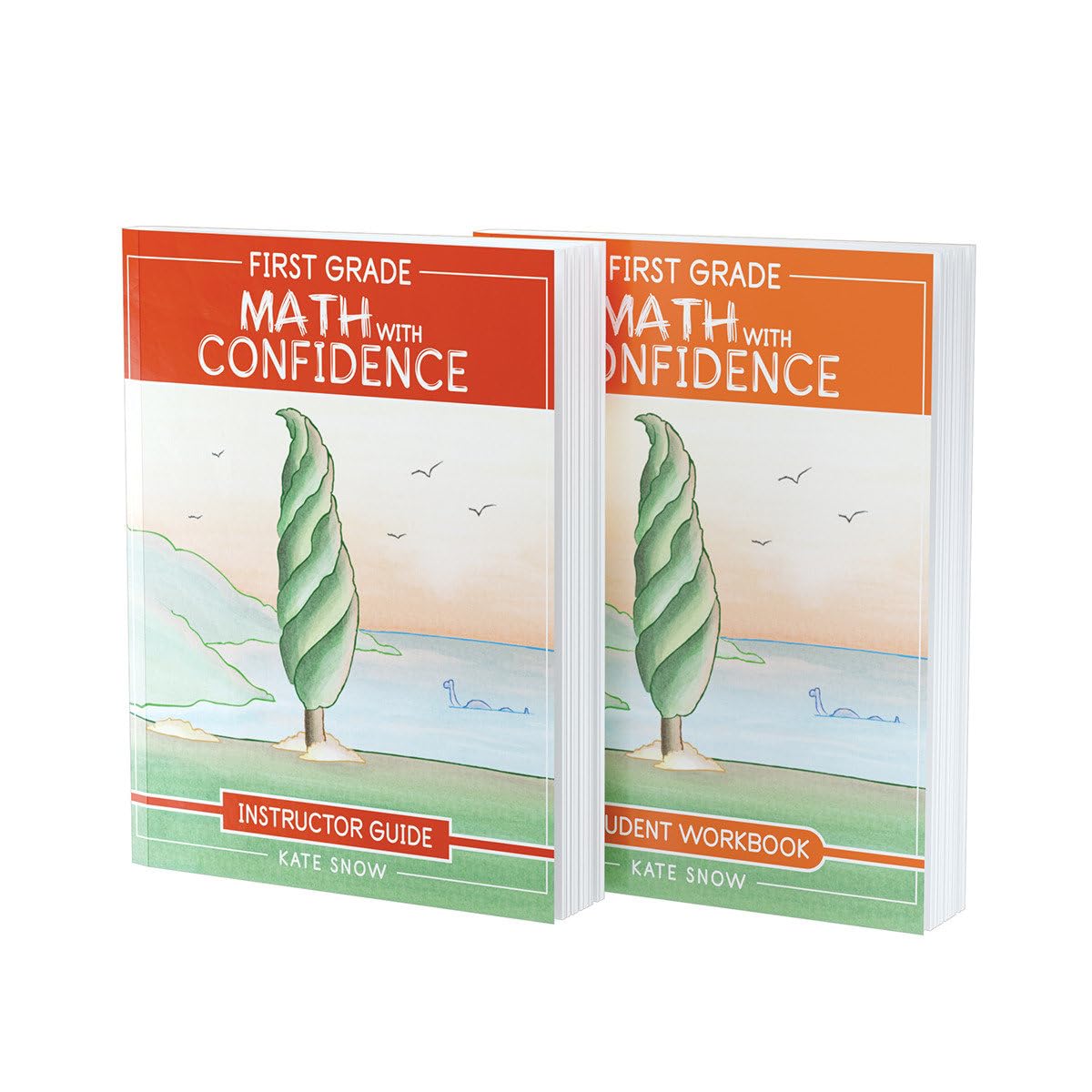
Age Range: 5 to 6 years
Grade: Elementary school, First grade
3. Second Grade Math with Confidence Bundle
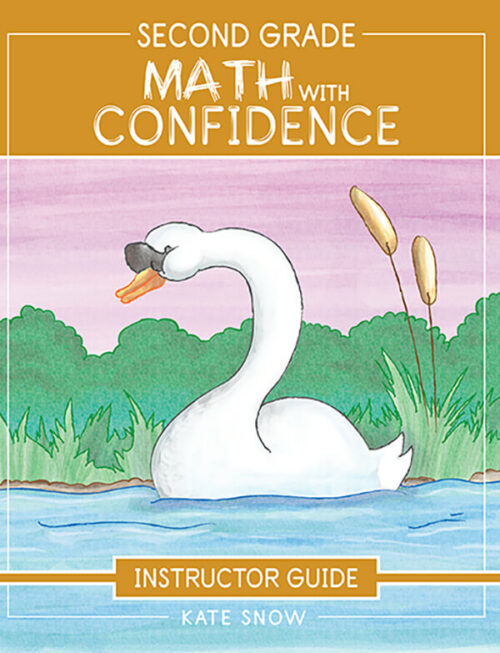
Place to purchase this book: Amazon and the Well-Trained Mind website.
Math educator Kate Snow provides parents with the tools to confidently teach second-grade math. This scripted, open-and-go program guides parents step-by-step through essential concepts such as:
- Reading, writing, and comparing numbers to 1000
- Adding and subtracting two- and three-digit numbers
- Solving addition and subtraction word problems
- Telling time, counting money, and measuring length
- Reading graphs, identifying shapes, and understanding simple fractions
Full-color illustrations in the Student Workbook; black-and-white illustrations, tables, and graphs in the Instructor Guide.
Age Range: 7 to 8 years
Grade: Second Grade.
4. Third Grade Math With Confidence
This article provides an overview of Third Grade Math with Confidence, including:
- Program and lesson organization
- Learning objectives
- Required materials
- Placement advice
- Book purchasing information
For details on the entire series or other grade levels, please see the article: Overview of Math with Confidence Homeschool Math Curriculum.
Place to purchase this book: Amazon and the Well-Trained Mind website
Age Range: 9 to 10 years
Grade: Third Grade
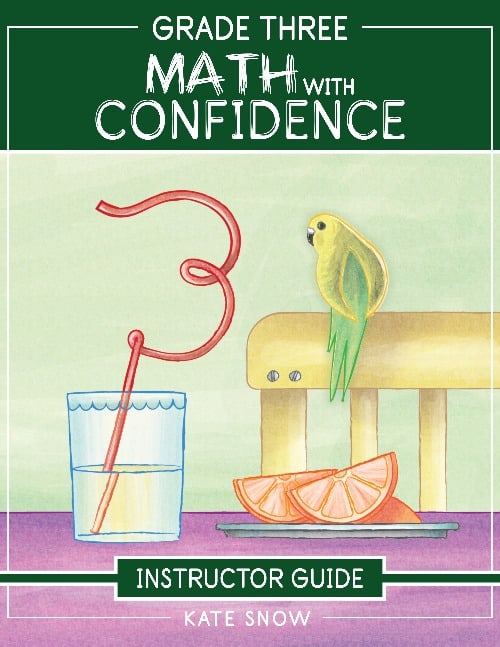
5. Fourth Grade Math with Confidence
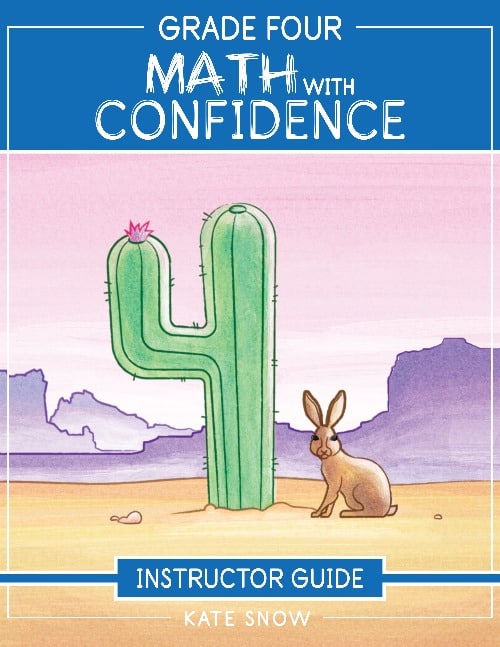
This article provides an overview of Fourth Grade Math with Confidence, including:
- Program and lesson organization
- Learning objectives
- Required materials
- Placement advice
- Book purchasing information
For details on the entire series or other grade levels, please see the article: Overview of Math with Confidence Homeschool Math Curriculum.
Place to purchase this book: Amazon and the Well-Trained Mind website
Age Range: 10 to 11 years
Grade: Four Gradess
Conclusion
Helping your child approach math with confidence requires a combination of a supportive environment, practical strategies, and a positive attitude. By making math relevant, encouraging a growth mindset, providing consistent practice, and seeking help when needed, you can empower your child to tackle math challenges with confidence. Remember, building math confidence is a journey, and with your support, your child can achieve great success.
Want to excite your child about math and sharpen their math skills? Moonpreneur’s online math curriculum is unique as it helps children understand math skills through hands-on lessons, assists them in building real-life applications, and excites them to learn math.
You can opt for our Advanced Math or Vedic Math+Mental Math courses. Our Math Quiz for grades 3rd, 4th, 5th, and 6th helps in further exciting and engaging in mathematics with hands-on lessons.


























My daughter has math anxiety. How can I help her overcome it?
To help your child with math anxiety, be mindful of how you talk about math, use mindfulness activities, encourage positive confidence, integrate math into everyday activities, and maintain a strong partnership with your child’s teacher. These strategies can contribute to reducing math anxiety and improving your child’s success.